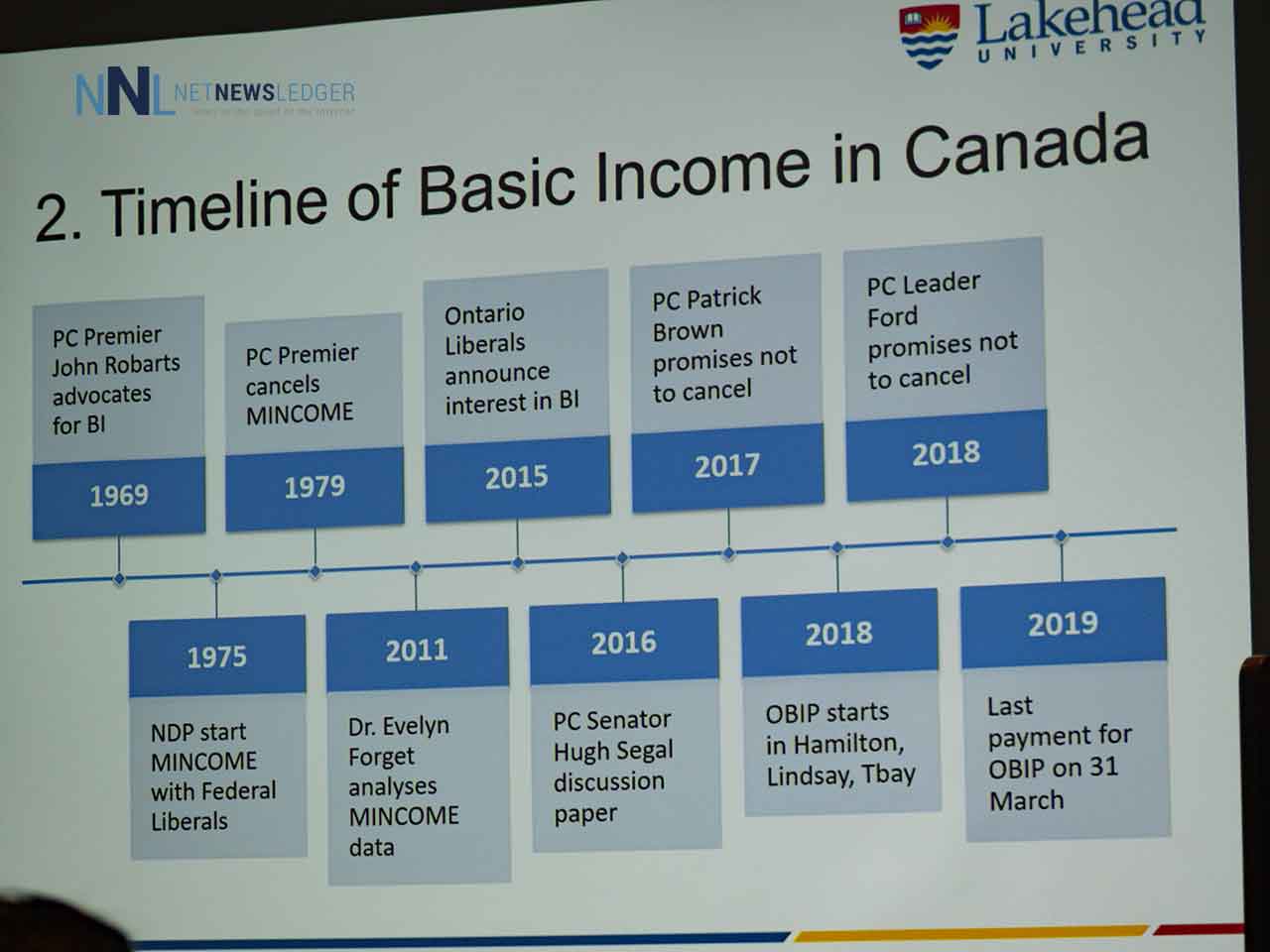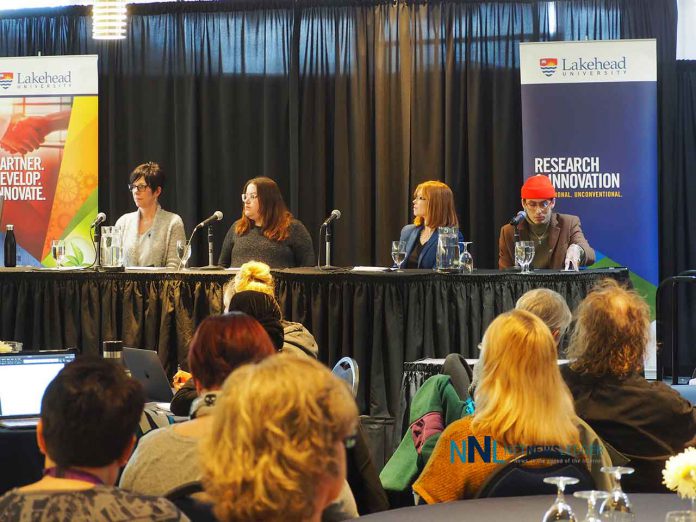THUNDER BAY – A panel on basic income was hosted at Lakehead University on March 4, 2020. The province of Ontario under the former Liberal government implemented a pilot project, which was later canceled by the Ford Government.
Ravi Gokani Ph.D., School of Social work at Lakehead University hosted the panel.
Gokanii brought the points forward with a history of the idea tracking it back to 1969, and shared how the former Progressive Conservative leaders Patrick Brown and then Doug Ford have both promised to keep the pilot program started under the Liberal government of Kathleen Wynne.

The Point in Time Count found most homeless were under 45 years of age
The basic income pilot project in Ontario involved 6000 people with 4000 people getting the income of $17k for a single person and $24k for a couple with an additional $6000 for individuals with a disability.
Panelists were Angie Lynch, Benjamin Murray, Charla Robinson, and Amanda Zaffino.
Questions: In what ways do you think basic income is a solution to income inequality and its associated problems?
Lynch: The BIPP brought the income level up to where people could survive. Bridged the inequality gap.
Zaffino: For a lot of people it is just enough money to get by from ODSP – Survival not living. You don’t have the ability to plan forward. Basic income gave me disposable income… gave me the opportunity to have plans.
Robinson: Basic Income allowed people to survive… from a skilled workforce perspective, people didn’t know if they could afford to do anything. Increasing the skilled workforce was possible under the BIPP.
BIPP supports entrepreneurship.
Murray: Basic income made businesses take me seriously. I was able to purchase a car. I was able to start a business. We all could benefit from more time to be creative.
Question 2: In what ways do you think basic income is a concession to income inequality and its associated problems, i.e. that it doesn’t address either in part or full the problems?
Murray: You don’t get the opportunity to learn the elusive different world. Banking, budgeting, and money.
Robinson: Concept of giving in to income inequality. Basic Income admits that but it is a false premise. Realizing there is a problem, what we are doing right now isn’t working. Not having food on the table tomorrow isn’t working. We need to be looking at ways to make society better.
Zaffino: It’s the solution – it fixes the problem but doesn’t address the status quo on those issues we live in, the class system, the racism. It is a better alternative. Automation and robotics is going to happen. Work or die society is wrong.
Lynch: Imagine a world where we didn’t even have money. Basic income is a band-aid. At $17k annually it was still under the “poverty line”. We see the results of poverty in Thunder Bay. People used to live “okay” – it is now about $700 a month. Where it was before Mike Harris cut it twenty years ago.
Question 3: Could you mention one reason why a basic income could be a solution to the problem of generational income inequality and one reason why it might be a concession to it?
Lynch: “Who doesn’t need more money”. Money is what it comes down to. Youth on the streets with cardboard signs begging for money. Not providing enough to allow people to live as well as they could.
Zaffino: I am here furthering my education, and basic income set me on that path. The GIG economy – many don’t have options without a base income. We have the right to an education, and we shouldn’t have roadblocks.
Robinson: Business perspective and economy, we have lots of businesses who can’t find the skilled workers they need. People who can’t afford to get those skills. People end up without careers just a “ J O B”. Opportunities are allowed with a basic income.
Murray: Breaking the generational cycle of poverty. If your parents have more money. They have more time to prepare their children. It’s never enough. As long as there are “super-rich” people… We are getting somewhere.
Question 4: What Sandel is saying is justifying basic income because jobs are fewer and pay less in giving into the rationale of income equality, that some people’s labour is worth more than others should be paid a basic income to accept this. Do you agree or disagree? Why or why not?
Murray: We are fighting what is inevitable. One day robots will be doing all the work… this shouldn’t even be a question.
Robinson: Sounds like someone who makes a lot of money trying to say that is the way. Are you going to pay $15 for a cup of coffee or pay $2? It may change with automation. We can make an investment in the person. Menial labour jobs may vanish. You find something that is valuable to yourself.
Zaffino: Safino assumes people are incapable of doing more. I don’t believe that. “We are not getting paid off to make a contribution …” Lots of assumptions. We shouldn’t be valuing people based on their economic contribution only.
In Canada being born with a disability shouldn’t be a life sentence to poverty.
Lynch: Pay Me Off. I thought I was selling my kids out when I returned to work. Leaving my kids to the daycare to leave. Imagine the world we would live in if people were allowed to be creative.
The panel offered insight, and the issue of a basic income was seen by the panelists on how we as a society can improve.





